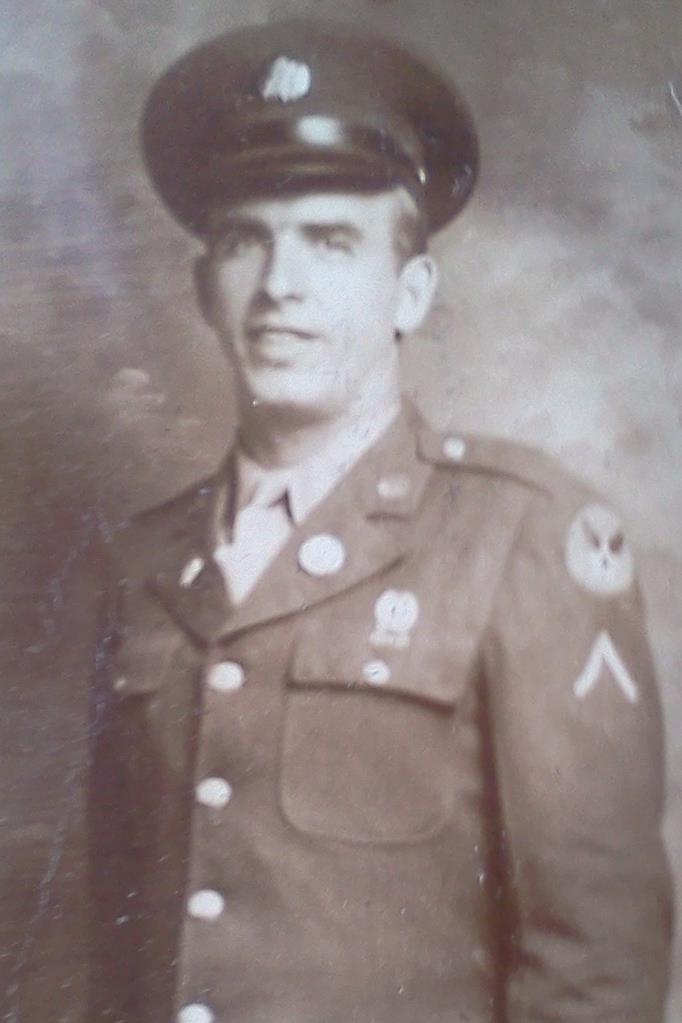My Great Granddaddy Criggar was born in Rockville, Maryland on October 26, 1918. As far back as I can remember, my Great Granddaddy was the backbone of our family. By the time I was born he had already moved with his wife to his retirement farm on the eastern shore of Maryland in a town called Greensboro. I remember fondly heading to their home and seeing my Granny Criggar welcoming us with a “come on in!” greeting. We would sprint as fast as we could to the back porch and run through the mud room, pass the kitchen to see Granddaddy coming out of the living room with his cane. The man stood well over 6 feet tall and had a stocky build. I remember pressing my head against his belly and giving him a strong hug. At some point during our visit, Granddaddy would play his favorite joke on us kids. He would pretend to smell flowers, and ask if we smelled it. He would then point to a pipe and ask if that is where it is coming from. To our unwelcomed surprise, we would smell the vent pipe to the old septic tank.
The house would soon fill with the smell of scrapple and fresh coffee. We always tried to make it in time for breakfast. One thing Granddaddy made sure of is that we always left with a full belly. “If you leave hungry, it is nobody’s fault but your own,” my Dad would always tell me. Nothing could be more true. Granddaddy had a kind soul and always ensured people were taken care of. On one occasion, Grandaddy was seen staring out the window at his apple tree to see a man pulled up in his car and taking apple after apple off the tree. My cousin saw this and asked him, “are you going to do anything?” Granddaddy just looked on, seemingly unphased, and stated calmy, “that man needs those apples more than I do.” This compassion was nothing new to Granddaddy. One of the more repeated stories of him was of him in World War II. Granddaddy was serving as a paratrooper, and when he noticed a German soldier that had been taken prisoner, he offered him his orange. While this may be a small act of generosity in the grand scheme of the war, it was a large impact of compassion that our family remembered greatly. The small act of handing a man, an enemy at that, a piece of fruit had been echoed throughout the family for years to teach the kids (myself at the time) of taking care of your fellow man. Perhaps he felt that if the German went hungry, it was nobody’s fault but his.
During the war, Granddaddy was a paratrooper. During his jump, his parachute malfunctioned causing a harsh landing and stranding him in Egypt with a broken back. While laying in the middle of nowhere, unable to move, he was approached by unidentified soldiers. The only recollection of this I remember him speaking of was that he thought they were going to kill him. However, he was spared that day, and word was sent to his unit of his location.
Returning home from the war, he married my great grandmother, Susie Tharp. They had 4 children, one of them being my grandmother, Mary Cook. If one thing stood out about my grandma aside how close she was with her parents, it was her close relationship with God. I would pray often with my grandma, and she always attributed her commitment to Christ to her mother and father. Granddaddy always called her to check in on the family. “How is Timmy? How is Will Ed? How is Kat?” Family was always on his mind.
In 2004, Granddaddy passed away. I got the call on a beautiful summer day. I recall feeling confused as this was the first relative of mine that I remember passing. I did not know how to act at a funeral or viewing and was a bit scared. When I arrived at the funeral home in Rockville, I recall the feeling of everyone missing him greatly, but happy to see one another. This was odd to me. Smiling at a funeral seemed out of place. However, I was welcomed with the spirit of Granddaddy. I felt warmth and hospitality. It was no surprise to hear the story of giving the orange to a German prisoner during the sermon.
I am now 34 years old and have 3 kids of my own. My Great Grandmother has passed away, as well as my aunt that had lived with them. My father had built his own house on the farmland, in a spot that was given to him by my Great Grandma. Granddaddy always wanted our family to have a place to go. By the grace of God, I was given the opportunity to buy the farm and raise my kids in the house I grew up loving. I strive to keep his legacy alive and take care of those in my community and my family, and of course, I play the septic tank joke on my kids at first opportunity.

